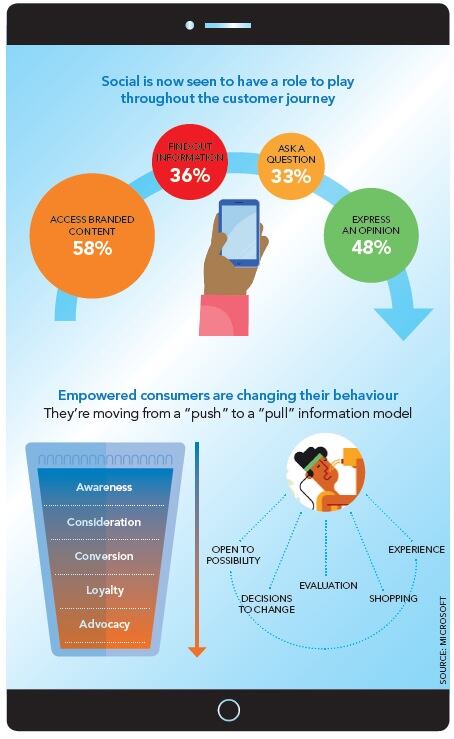It happened when Nevada 16-year-old Carter Wilkerson tweeted at the fast food chain with the question “Yo @Wendys how many retweets for a year of free chicken nuggets?” The chain’s response was ‘18 million.’
Quickly enough, without the help of a big publicist firm or multi-million dollar budget for marketing, the teenager started the hashtag #NuggsforCarter, and the tweet amassed more than 3,470,000 tweets, beating Degeneres’ 3,430,249 retweets. Other companies jumped in on the subtweets, from Google to Verizon to United, in what Vox called a “constant courtship by brands of all stripes trying to get a piece of Wendy’s free-publicity pie.”
In the various news stories that came out of this tweetfare, from Buzzfeed to The New York Times to NPR, a common theme is a contemplation of how this simple tweet exemplified the power of social media, and the changing landscape of company-consumer interaction.
Tetra Pak: 80% of Millennials expect brands to entertain them
Wilkerson’s story is a perfect case study for Tetra Pak’s new global report on courting consumers, titled Insights & Opportunities: The Connected Consumer, which combined results from a Kantar TNS-led survey of 70,000 participants in 57 markets, as well as secondary research from existing reports.
The chicken nuggets fanfare embodied what Tetra Pak called in its report ‘a world of consumer commentary.’ A majority of Millennials (80%) expect brands to entertain them, and 70% feel a responsibility to share feedback on social media with companies after a good or bad experience, according to the report, which cited data from the Edelman 8095 2.0 Global Study.
This new dynamic means consumers will become more accustomed to hearing from brands when they seek them. “Once [consumers] can get what they want without leaving themselves open to interruptions – whether through voice interfaces or AI-driven background services – they will feel even more hostile to ad interruptions than they claim to today,” the report said, citing a Forrester report.
“That means the 38% of US online adult users already trending toward computer-based ad blocking and ad avoidance will continue to expand – not out of hostile consumer intent, but out of casual indifference to advertiser interests.”

Engaging with the ‘Super Leaders’
There’s a particular type of online user which Tetra Pak dubbed as ‘Super Leaders,’ the most active and social internet users. These are the type of online personalities who have sway over the public, or at least a knack for making something noticed.
Tetra Pak and Kantar TNS surveyed 300 of such internet users in three different markets—100 each in the US, UK, and China. Super Leaders are more likely to read reviews and ratings on food and beverages weekly. Around 68% of these internet users write reviews on such products weekly, and are more likely to tag the relevant brands. A whopping 78% expect brands to reply.
“Super Leaders are a golden source of brand advocacy and influence in an age where consumers are becoming both more vocal and more likely to listen to and trust the opinion of their peers,” according to the report.
The key insight is that consumer touchpoints “are at the start and end of the journey,” according to the report. And consumers today are more inclined to be ‘entertained’ and engage with brands that are candid on social media and “express an opinion”—take for example the friendly chide between AMC Theatres and Oreo after the latter asked its followers if they’ve ever sneaked in their own cookies into the movies.
But it’s not a fool-proof method, and for now it seems like there isn’t a formula for going viral. As the New York Times journalist Daniel Victor wrote in his piece about Carter Wilkerson and his Wendy’s nuggets:
“Asking why a tweet goes viral is like asking why your life has brought you to this very moment. Perhaps it’s random, perhaps it’s divine, perhaps it’s unknowable. No mere human, no Kardashian nor YouTube star, can decide.”
